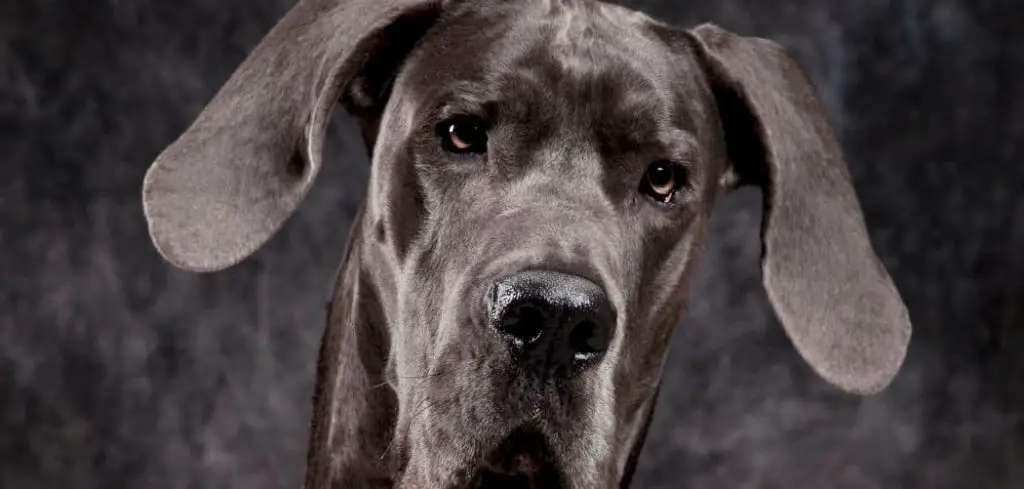It can be distressing to see a dog that seems extremely anxious at night. Restlessness, whining, pacing, or even destructive behavior after the sun goes down can leave both dogs and their owners exhausted.
Nighttime anxiety can signal health issues, emotional stress, or environmental factors that need attention.
We outline the common causes of extreme anxiety in dogs at night, what you can do, and when to seek veterinary help.
Table of Contents
Dog Extremely Anxious at Night — Why It Happens
When a dog becomes extremely anxious at night, there are often underlying reasons driving this behavior. Anxiety can stem from separation issues, noise phobias, age-related cognitive decline, or even underlying medical conditions like pain or digestive discomfort.
Environmental changes, such as a recent move or disruptions to a dog’s routine, may also play a role.
Dogs are sensitive creatures, and what happens in the nighttime environment often magnifies their stress.

Extreme Anxiety in Dogs at Night: Common Causes
Separation Anxiety
Dogs with separation anxiety often struggle the most during the night when their owners go to bed. The quietness and darkness may heighten their distress.
This can lead to constant whining, scratching at doors, or pacing around the house.
Over time, separation anxiety can worsen if not addressed, leaving a dog restless and owners sleepless.
Read more: Dog Excessively Thirsty at Night (Could it be a health concern?)
Noise Sensitivity
Some dogs become unsettled at night due to unfamiliar or loud noises, such as thunderstorms, fireworks, or even distant traffic.
Their heightened hearing makes them more sensitive than humans, and nighttime often amplifies environmental sounds.
This fear can cause trembling, panting, barking, or pacing until the noise subsides.
Pain or Discomfort
Medical conditions such as arthritis, digestive upset, or urinary tract issues can cause a dog to feel pain that becomes worse at night.
An anxious dog might move around constantly to try to get comfortable, vocalize, or wake up frequently.
Because nighttime is quiet, discomfort becomes more noticeable and distressing for dogs, fueling their anxiety.
Cognitive Dysfunction (Dog Dementia)
Older dogs are especially prone to nighttime anxiety due to canine cognitive dysfunction, a condition similar to dementia in humans.
Dogs may become confused about the time of day, restless, or disoriented at night.
This condition often leads to pacing, vocalization, and trouble settling down, which can be exhausting for both pet and owner.
Changes in Environment or Routine
Dogs thrive on consistency, and sudden changes can trigger anxiety, especially at night.
A recent move, a new family member, or even rearranging furniture can unsettle a dog’s sense of safety.
Disruptions to feeding times, exercise schedules, or bedtime routines can all contribute to heightened nighttime stress.
Lack of Mental and Physical Stimulation
Dogs that don’t get enough exercise or enrichment during the day may struggle to settle down at night.
Pent-up energy often turns into anxiety, restlessness, and pacing once the household quiets down.
This is especially common in high-energy breeds that need consistent daily outlets for their physical and mental needs.
What to Do If Your Dog Is Extremely Anxious at Night
Helping an anxious dog requires a mix of comfort, structure, and sometimes medical support. Start by ensuring your dog has a consistent bedtime routine, which can help signal that it’s time to wind down
. A calm environment with dim lighting, soothing background sounds, and a comfortable sleeping space can go a long way.
For dogs with separation anxiety, try using calming aids like pheromone diffusers, weighted blankets, or safe chew toys to provide comfort.
Some dogs benefit from being allowed to sleep near their owners to ease their distress. For noise-sensitive dogs, masking outside sounds with white noise machines or soft music may help.
Daily exercise and enrichment are essential. A tired dog is more likely to rest at night.
Brain games, puzzle feeders, and evening walks can help release excess energy and reduce nighttime restlessness.
If pain or illness is suspected, working closely with a veterinarian is key, as medication or treatment may be required.
When to Call or Visit Your Vet
If your dog’s nighttime anxiety appears suddenly and severely, it’s best to consult a veterinarian.
Rapid changes in behavior can signal pain, illness, or neurological problems. Signs like excessive drooling, limping, vomiting, or difficulty breathing should never be ignored.
Dogs that seem confused, disoriented, or restless despite being otherwise calm during the day may be experiencing cognitive dysfunction.
A veterinarian can provide strategies or medications to help ease nighttime anxiety in senior dogs.
If at-home efforts aren’t improving your dog’s nighttime anxiety, veterinary evaluation is crucial.
Persistent anxiety can impact both the dog’s and the owner’s quality of life, and professional support ensures underlying medical conditions are not overlooked.
Read more: Dog Drooling and Licking Excessively at Night (What it means)
Key Takeaway
A dog that is extremely anxious at night is not only struggling emotionally but may also be signaling an underlying health or environmental issue.
From separation anxiety and noise sensitivity to medical conditions and age-related changes, many factors can play a role.
The good news is that with patience, structure, and veterinary support when needed, most dogs can find relief.
By creating a safe, calm nighttime environment and addressing possible medical or behavioral causes, you can help your dog feel more secure and comfortable when the lights go out.
